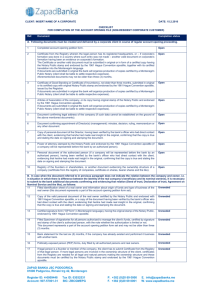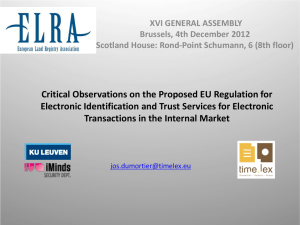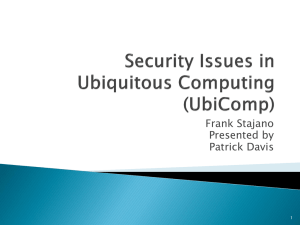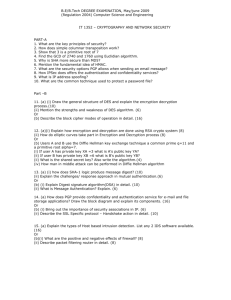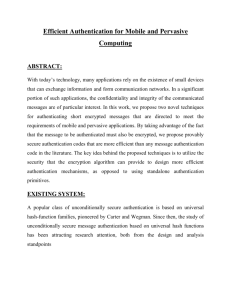AUTENTICATION OF DOCUMENTS EXECUTED INSIDE OR
advertisement
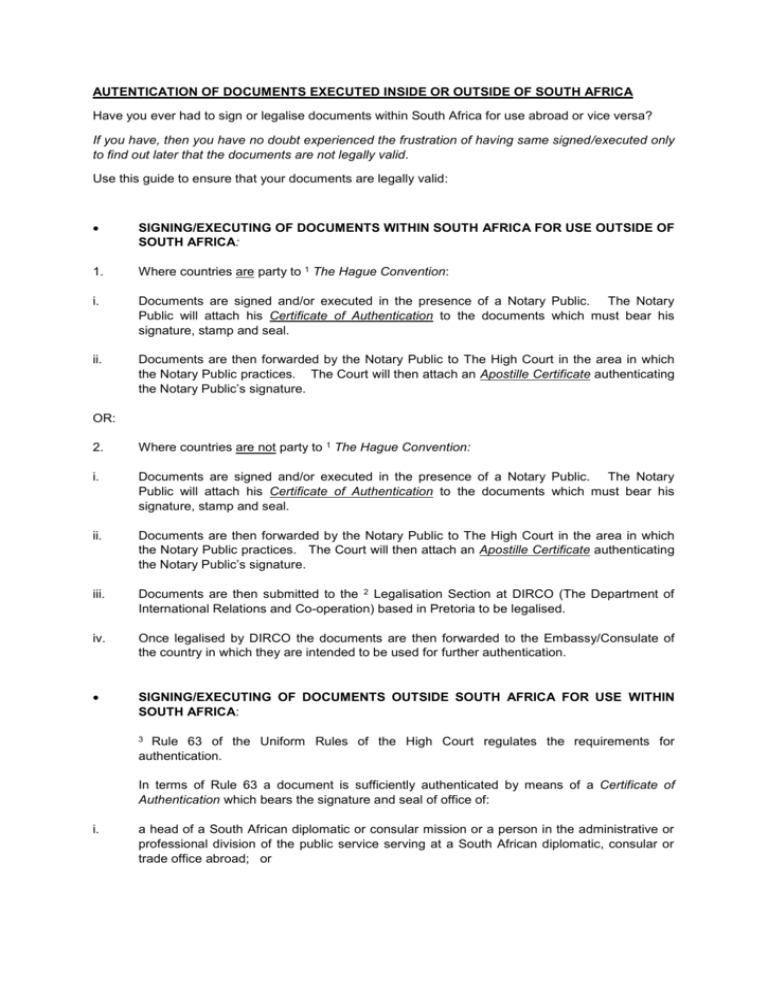
AUTENTICATION OF DOCUMENTS EXECUTED INSIDE OR OUTSIDE OF SOUTH AFRICA Have you ever had to sign or legalise documents within South Africa for use abroad or vice versa? If you have, then you have no doubt experienced the frustration of having same signed/executed only to find out later that the documents are not legally valid. Use this guide to ensure that your documents are legally valid: SIGNING/EXECUTING OF DOCUMENTS WITHIN SOUTH AFRICA FOR USE OUTSIDE OF SOUTH AFRICA: 1. Where countries are party to 1 The Hague Convention: i. Documents are signed and/or executed in the presence of a Notary Public. The Notary Public will attach his Certificate of Authentication to the documents which must bear his signature, stamp and seal. ii. Documents are then forwarded by the Notary Public to The High Court in the area in which the Notary Public practices. The Court will then attach an Apostille Certificate authenticating the Notary Public’s signature. OR: 2. Where countries are not party to 1 The Hague Convention: i. Documents are signed and/or executed in the presence of a Notary Public. The Notary Public will attach his Certificate of Authentication to the documents which must bear his signature, stamp and seal. ii. Documents are then forwarded by the Notary Public to The High Court in the area in which the Notary Public practices. The Court will then attach an Apostille Certificate authenticating the Notary Public’s signature. iii. Documents are then submitted to the 2 Legalisation Section at DIRCO (The Department of International Relations and Co-operation) based in Pretoria to be legalised. iv. Once legalised by DIRCO the documents are then forwarded to the Embassy/Consulate of the country in which they are intended to be used for further authentication. SIGNING/EXECUTING OF DOCUMENTS OUTSIDE SOUTH AFRICA FOR USE WITHIN SOUTH AFRICA: 3 Rule 63 of the Uniform Rules of the High Court regulates the requirements for authentication. In terms of Rule 63 a document is sufficiently authenticated by means of a Certificate of Authentication which bears the signature and seal of office of: i. a head of a South African diplomatic or consular mission or a person in the administrative or professional division of the public service serving at a South African diplomatic, consular or trade office abroad; or ii. a consul-general, consul, vice-consul or consular agent of the United Kingdom or any person acting in any of the aforementioned capacities or a pro-consul of the United Kingdom; or iii. any Government authority of such foreign place charged with the authentication of documents under the law of that foreign country; or iv. any person in such foreign place who shall be shown by a certificate of any person referred to in paragraph (i), (ii) or (iii) or of any diplomatic or consular officer of such foreign country in the Republic to be duly authorised to authenticate such document under the law of that foreign country; or v. a Notary Public in the: - United Kingdom of Great Britain and Northern Ireland (England or Ireland); Zimbabwe; Lesotho; Botswana; Swaziland; or vi. a Commissioner Officer of the South African Defence Force as defined in section 1 of the Defence Act, 1957 (Act 4 of 1957) in the case of a document executed by any person on active service. DOCUMENTS EXECUTED IN THE ANTARCTICA Documents executed in the 4 Antarctica do not require authentication DOCUMENTS EXECUTED IN NAMIBIA Documents executed in Namibia cannot be authenticated before a Notary Public. However Namibia is a party to The Hague Convention and the documents can thus be authenticated via these formalities. POWER OF ATTORNEY EXECUTED IN LESOTHO, BOTSWANA OR SWAZILAND A Power of Attorney which is executed in these countries and which gives authority to a person to take, defend or intervene in any legal proceedings in a Magistrate’s Court within The Republic of South Africa shall not require authentication. However the Power of Attorney must be duly signed and the signature must have been attested by two competent witnesses. BIBLIOGRAPHIES Statutes: - The Rules of the High Court of South Africa, as amended by G.N. R.500 dated 12/3/82 and R.801 dated 23/4/82. -The South African Citizens in Antarctica Act, 1962 (Act No. 55 of 1962) Websites: - KwaZulu-Natal Law Society – www.lawsoc.co.za - Department of International Relations & Cooperation, Republic of South Africa – www.dfa.gov.za Journals: - The South African Deeds Journal – Issue 31 ________________________ SUMMARY: Documents must be properly authenticated to ensure that it is legally valid for use either within South Africa or abroad. The country in which the documents will be used will determine the authentication process required. The process of authentication is simplified where the country is a party to The 5 October 1961. Hague Convention of Documents are authenticated via a Certificate of Authentication and/or an Apostille Certificate. Rule 63 of The Rules of the High Court of South Africa regulates the where documents are signed/executed outside South Africa for use within South Africa. requirements for authentication __________________________ FOOTNOTES: 1 The Hague Convention of 5 October 1961. A full list of signatory countries that are a party to The Hague Convention of 5 October 1961 can be viewed at : The Hague Conference on Private International Law – http://www.hcch.net 2 The Department of International Relations and Cooperation (DIRCO): E-mail: legalisation@dirco.gov.za Website: www.dfa.gov.za/consular/legalisation.htm 3 Rule 63 of The Rules of the High Court of South Africa, as amended by G.N. R.500 dated 12/3/82 and R.801 dated 23/4/82. 4 In terms of Section 2(1) of the South African Citizens in Antarctica Act, 1962 (Act No. 55 of 1962) the laws in the Republic of South Africa shall apply to South African Citizens while they are in the Antarctica.

